3 Major Life Events That Can Benefit from Financial Advice
Managing your personal finances can be a complex and challenging task. From budgeting and investing to retirement planning and tax management, there are numerous aspects to consider. You’re not alone if you currently find yourself wondering, should I hire a financial advisor? While everyone’s financial situation is unique, there are a handful of major life events that can greatly benefit from the guidance of a qualified financial professional, wealth manager, financial advisor, etc. While this list is not exhaustive, let’s explore a few such life events and how important it is to your financial future to receive sound advice.
Planning for Retirement
Retirement planning is a critical aspect of our financial lives, but it can be overwhelming to tackle alone. That’s where a financial advisor comes in. Hiring a financial advisor is important when you start thinking about retirement planning and they can help you create a successful retirement plan. It is important to note that this process should be taking place long before your anticipated date of retirement. An experienced financial advisor will create a comprehensive retirement plan, in collaboration with you, that is tailored to your specific needs and goals from the onset of the relationship. By going through The Financial Planning Process, this will help to determine your optimal retirement age, estimated retirement expenses, and develop strategies to maximize retirement savings, to name a few. Your financial advisor can also help with specific recommendations on various investment options, such as individual retirement accounts (IRAs) or 401(k)s and provide insights on asset allocation and risk management in those various accounts. Additionally, your financial advisor will also be able to provide key recommendations on tax-efficient strategies for contributions and distributions as well as Social Security claiming strategies to maximize your total retirement income. The sooner you start, the better. According to the Bureau of Labor Statistics, they have found that not only does simply saving for retirement earlier lead to a better retirement but in-depth planning with an experienced professional helps lead to a successful retirement. “Especially for workers just starting their careers, the message is clear: start saving now, no matter how far in the future retirement seems. Learn from those who are retiring today,” says Denise Appleby, owner of a retirement consulting business. “Otherwise, you might regret not saving enough, early enough.”
This is not all to say that retirement planning is only valuable to those who are many years away from retirement. In fact, just the opposite is more likely true. If you are nearing retirement and have not had the chance to consult with a financial planner about your retirement, this could be even more valuable to you, especially as you navigate the last few years before and the first few years of retirement, also commonly known as the “Retirement Danger Zone.” According to industry leader, Michael Kitces “The final decade leading up to retirement, and the first decade of retirement itself, form a retirement danger zone…where the portfolio’s value is so large that a potential market decline can have a catastrophic impact (given a fixed standard of living that the portfolio is intended to support).” Navigating this time period is not impossible to do on ones one, many do, but it cannot be understated the impact of having less stress about your finances during those years, knowing you have a plan in place that has been analyzed and reanalyzed by a professional.
Starting a New Job or Receiving a Significant Raise
As Spider Man’s Uncle Ben once said “with great power comes great responsibility.” Likewise, with more money comes more responsibility, and that’s where a financial advisor can help. When you experience a significant increase in income, whether it’s a new job or a raise, it’s essential to make sure you’re making the most of your money. A financial advisor can help you determine the best course of action to take with your newfound wealth. For example, they may suggest increasing your retirement contributions, paying off debt, or taking some of that disposable income and investing it in a Non-Retirement investment account.
One of the most significant benefits of hiring a financial advisor is their expertise. They have the knowledge and experience to navigate complex financial situations and make recommendations that align with your goals. Let’s take a look at some examples:
Tax planning: With a higher income comes a higher tax burden. A financial advisor can help you minimize your tax liability by taking advantage of deductions, credits, and other tax-saving strategies. Great financial advisors have close relationships with their clients’ CPAs and will collaborate with them to keep your tax burden as low as possible.
Debt management: If you have existing debt, a financial advisor can help you create a plan to pay it off faster. They can also help you decide whether it’s better to focus on paying off debt or investing your money elsewhere. Check out our other blog post, Invest my money or add to savings?, that goes more in depth on this topic.
Investment advice: A financial advisor can help you determine which investments are right for you based on your risk tolerance and financial goals. They also regularly monitor your investments and make adjustments as needed.
Risk Management: A financial advisor can help you determine which types of insurance you need, such as life insurance or disability insurance, and how much coverage is necessary. A good fiduciary financial planner will have the capability to write a policy for if need be, but you can relax knowing that because they are a fiduciary you are only paying for what you absolutely need.
When you receive the new that you’ve gotten that great new job or huge promotion that is going to change your financial life, your first call, after calling your spouse, parents, close friends, should be to a an experienced financial advisor.
Managing an Inheritance or Windfall
Receiving a windfall, whether it’s from selling a business, property, or receiving a large inheritance, can bring about a variety of emotions. While you may have a litany of other things on your mind, it’s a time when you need to carefully consider how to manage that newfound wealth. In this section, we’ll discuss some important things a financial advisor can do for you when you receive a windfall.
Just as we’ve discussed in the previous two sections, one of the most important things a financial advisor can do for you is to help you develop a comprehensive, custom tailored financial plan. This plan should include your short- and long-term goals, risk tolerance, tax implications, and possibly much more if needed. A financial advisor can help you develop a plan that ensures you’re managing your funds in the most efficient and effective way possible. According to a 2015 study, “…one third of people who received an inheritance had negative savings within two years of the event…the vast majority of people blew through it quickly.” Closely consulting with a financial advisor during this time is crucial to whether those funds will last or not. Texas Tech University School of Financial Planning Director, Sarah Asebedo says, “Put some separation between the receipt of that money and the use of that money. Give yourself time to sort through all of those emotions. You may be excited in the beginning, and then for whatever reason, you might have some stress or worry about using it the right way.”
What is BentOak Capital and How We Can Help
We deliver personalized wealth management solutions to high net worth families, trusts, and businesses, so they can focus on what matters most to them. At BentOak Capital, our financial planners and investment advisors work as a team to provide holistic financial planning services in the areas of investment management, retirement planning, estate planning, tax planning, insurance planning and risk management, cash flow and debt management, and more. We will examine your financial landscape from every angle, accounting for every opportunity and challenge so you can make the most of your wealth. To us, financial planning is an ongoing process, not just a moment in time. The best financial plans are dynamic, evolving as new life events occur or different perspectives develop, and we will consistently revisit your plan with you as needed. If you are curious about becoming a client of ours and would like to talk, please consider give our office a call.
The opinions voiced in this material are for general information only and are not intended to provide specific advice or recommendations for any individual. All performance referenced is historical and is no guarantee of future results. All indices are unmanaged and may not be invested into directly.







